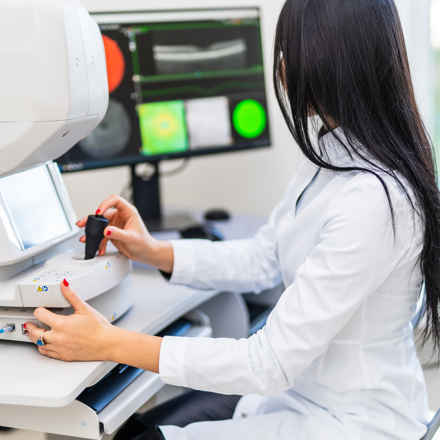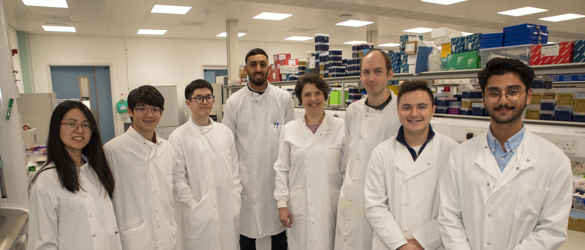Finding early AMD changes using eye scans

Dr Ruth Hogg, Queen's University Belfast - £249,941
This project uses long-term follow-up of retinal scans from the Northern Ireland Cohort of the Longitudinal study of Ageing (NICOLA), to understand what changes in eye scans may be early signs of age-related macular degeneration (AMD).
What is the problem?
While we are continuing to understand more about how AMD develops and how to treat the condition, we still know little about the early signs and changes in the macula. If we want to find treatments for AMD before sight loss occurs, we need to be able to accurately diagnose the earliest signs of AMD.
What are they doing?
The Northern Ireland Cohort of the Longitudinal study of Ageing (NICOLA) is a study of around 8,500 people over 50 in Northern Ireland. The study started in 2014 and took eye scans of over 3,000 participants. The NICOLA team now want to follow up with these participants and repeat the eye imaging scans.
How can this help?
This follow up will allow researchers to find out who has gone on to develop AMD in the last 10 years, and try to understand factors that may have contributed to their disease developing. They hope these scans will also help in finding new markers of early disease, to understand what changes are due to ageing and what are the first signs of AMD.
See our other projects
Since 1987 the Macular Society has invested around £10 million in over 100 research projects.
Explore more research
Beating macular disease through funding medical research and improving the lives of those living with macular disease.
Get the latest research news from the Macular Society
To hear about life-changing research and treatments, subscribe to our monthly enewsletter today. Together we can Beat Macular Disease.
Sign up to our free email newsletter



